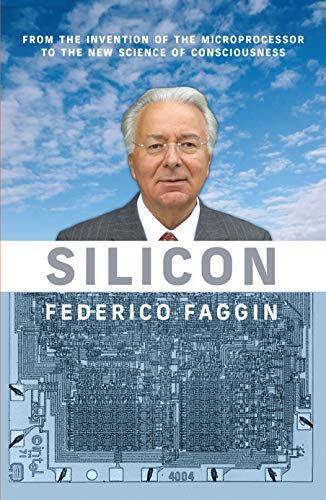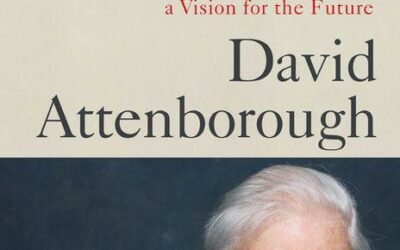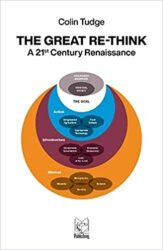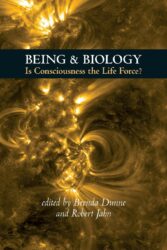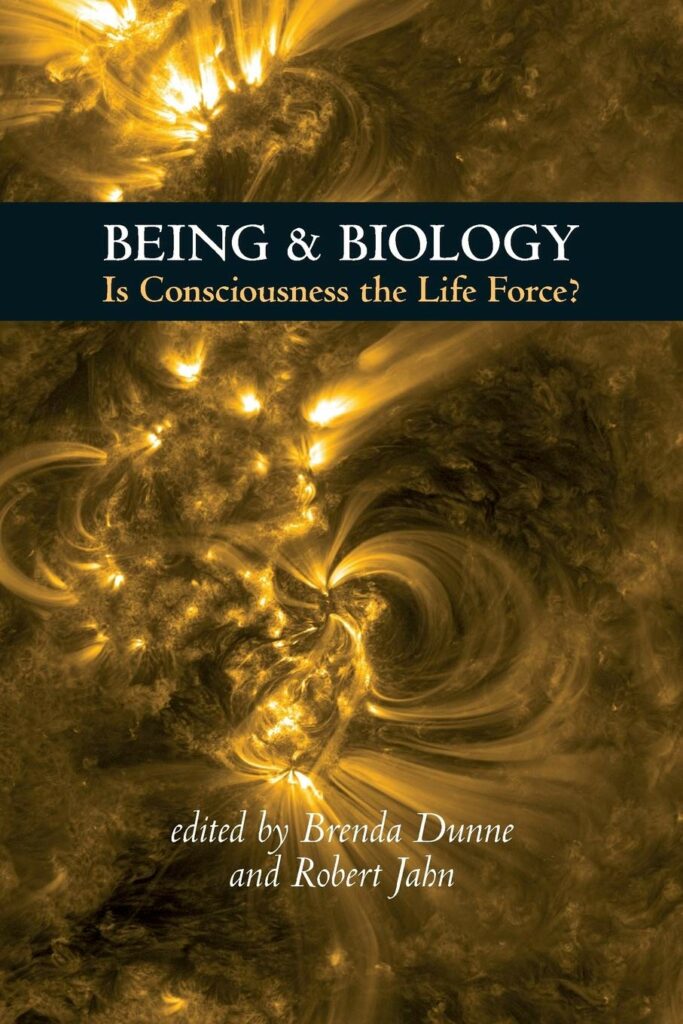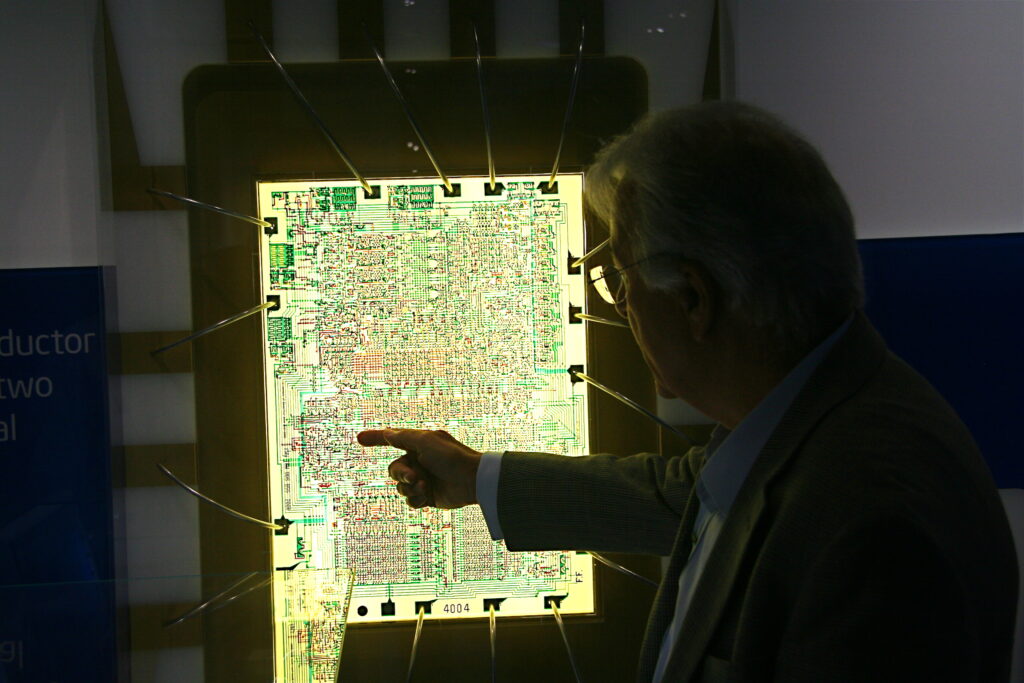
A Quantum Polymath, a Leibniz of our Times
Book Review
by Vasileios Basios PhD, (physics of complex systems)
This seminal work is primarily about consciousness and the emerging science of consciousness. It is a major contribution towards the advent of this new kind of science that breaks fertile ground not only for new developments in research and theoretical advances but also in the way we think about science per se. This book opens the path towards an interdisciplinary, self-reflecting science of consciousness weaving together the author’s self-examination with his reflections on the nature of information and meaning. It is seminal in pointing towards the necessary breakthroughs in our conceptual frameworks.
While the book can be pleasantly read as an autobiography of Federico Faggin it can also be studied, deeply, as a treatise on the foundations and study of consciousness. With engaging narrative, he talks about his many lives, four in total. As his four lives unfold we follow him as an aspiring student during post-war Italy; as a pioneering engineer achieving the ‘Silicon-Valley dream’ and fame during the earliest days of the computer industry; then becoming one of the major global players in high-tech entrepreneurship; and finally as an enlightened polymath after his sudden inner transformation.
Of course, Federico would never describe himself as enlightened or a polymath – it comes naturally to the reader to be thinking of him on a first name basis because his autobiography reads more like a confession to a friend rather than a report on his recollections and achievements. What reveals these personal qualities are the many anecdotes, quotes and rare references with which this book is sprinkled. What shows his spiritual enlightenment is the quality of the description of his inner transformative experience. Honest and brilliant as a lightning flash.
The reader will find also high drama in the author’s lively account of the titanic classes of high-tech giant corporations, of the likes of ‘Intel’, ‘Olivetti’, ‘IBM’, ‘Apple’ etc. There is even a surprise appearance of ‘Exxon’ among them. The author experienced first-hand the struggles for domination of silicon-based information technologies and their vast market. In this war financial titans were involved along with valiant start-ups whose victories disturbed the peace of the billionaires. That was during Federico’s ‘third life’, his ascent as the ‘father of the first commercial microprocessor’ and as the inventor of its unique process architecture which became the basis of all modern integrated circuits. All of them, like the ones running right now on your PC, tablet or smart-phone from where, most probably, you are reading these lines.
Thrilling and wonderful stories as they are, supported by brilliant apprentices where the erudition of the writer becomes evident through amazingly interesting details, these serve as a prelude to the main theme: consciousness and its study.
Knowing more than any other what a computer is and is not, Federico engages in a tour de force to demonstrate why intelligence and consciousness cannot be reduced to the workings of electronic circuits and machines. The reader will find one of the most accurate, interesting and clear arguments ‘contra transhumanism’ and why it is impossible to equate human intelligence, or living awareness, with artificial intelligence.
The author’s thirty-plus years of investigations on the nature of consciousness led him to a point of sudden illumination, a ‘satori’, an inner transformative experience reminiscent of the ones on which the ‘Perennial Philosophy’ is based. He seems at home discussing this perennial wisdom, due his childhood studies of Plotinus and the classics. He is equally at home discussing top-notch models of quantum mechanics and quantum information, being a pure physicist at heart.
The reader will find the discussion of quantum physics as information theory extremely educational and enlightening. This work, the major part of his ‘fourth life’ chapter, is further presented in the appendices in a very concise, engaging exposition that it is easy and fun to follow. At present, he is continuing to develop, with Prof. D’Arriano and his team, the pioneering work presented here. It is simply imperative for any student of the ‘hard-problem’ or the ‘quantum-mind’ be they physicists, mathematicians or other interested of quantum information to read and follow this promising approach. Moreover, we are very fortunate that Federico features in a number of interviews and presentations available in various channels (e.g. on YouTube ).
In order to achieve the introduction of an ‘inside’, the inner semantic reality of experiences or ‘qualia’, and integrate this inner-reality with the outer, symbolic or physical-reality, via information Federico introduces what he calls ‘Conscious Units’ (CU) within the ‘overall conceptual structure the ‘CIP Framework’, where C stands for consciousness space, I stands for informational space, and P stands for physical space. This echoes Alfred North Whitehead’s “prehensions” (instances of pre-awareness) but actually his CUs have much deeper roots. They are the heritage of the Monads of the Pythagorean-Gnostics via Nicholas of Cusa, Giordano Bruno and Gottfried Wilhelm Leibniz in our post-quantum era. Federico is proposing a quantum-information version of such monads, a daring, long- awaited, step to herald the new Science of Consciousness cognisant of self-reflection.
The next daring step that I think and hope the ‘Galileo Commission’ researchers will take in this direction, is to link Federico’s CU’s and CIP-fields with certain unanswered questions from mind-matter interaction data such as those amply provided by the old PEAR lab (now ICRL) and the ‘Global Consciousness Project’. As far as I know only Federico Faggin and Stuart Kauffman have the intellectual prowess to cite this body of research in their peer-reviewed academic publications when discussing mathematical models of consciousness.
Here is a particularly lovely and inspiring passage from the book: “…[The] One knows all manifestations from the inside and is also what connects all from the inside. One is the creative interiority of all that exists, partaking in the experience of every entity. What matters to One is the self-knowing gained by the hierarchy of communicating CUs …” overarching this passage is a quote attributed to Giordano Bruno, “A single force, Love, links and gives life to infinite worlds”. Very appropriately the author subtly reminds us that the One is Love, after all.
This book is a treasure, a joy to read, seminal and inspiring. Because in the midst and the mist of current Science of Consciousness studies Federico puts firmly the values of Self-Reflection as its ‘sine qua non’ foundational stone. And as Emilios Bouratinos maintained: “Socrates used to say that a life without self-reflection is not worth having. Indeed, we can paraphrase him as follows: A science of consciousness without self-reflection is not worth having”. Then, definitely the Science of Consciousness that Federico is putting forth is indeed worth having, indeed it is a blessing.

